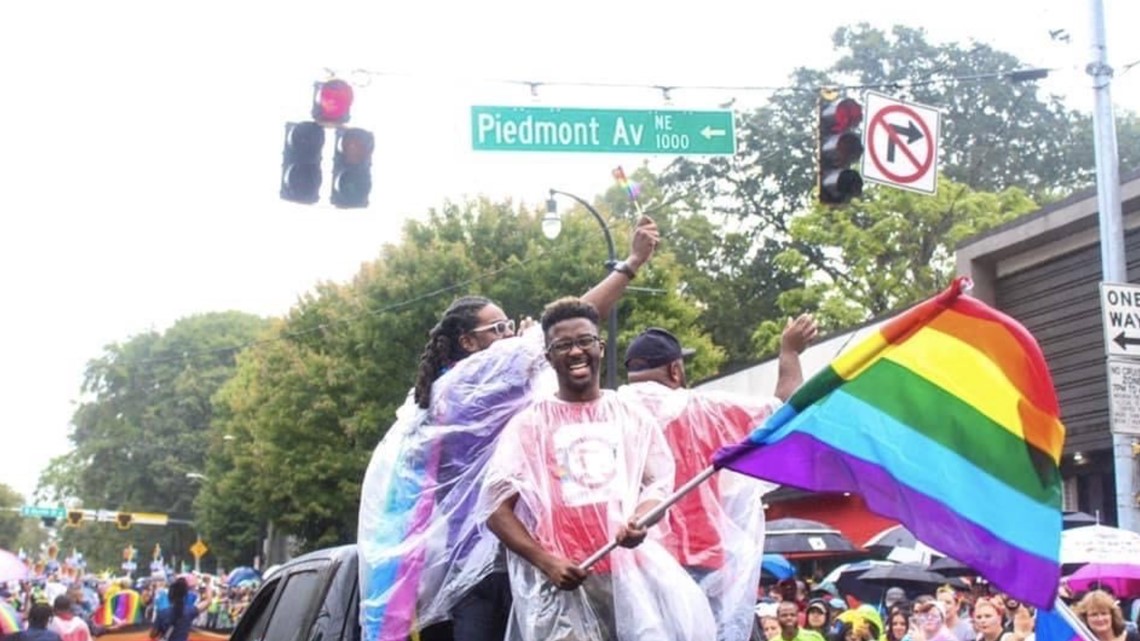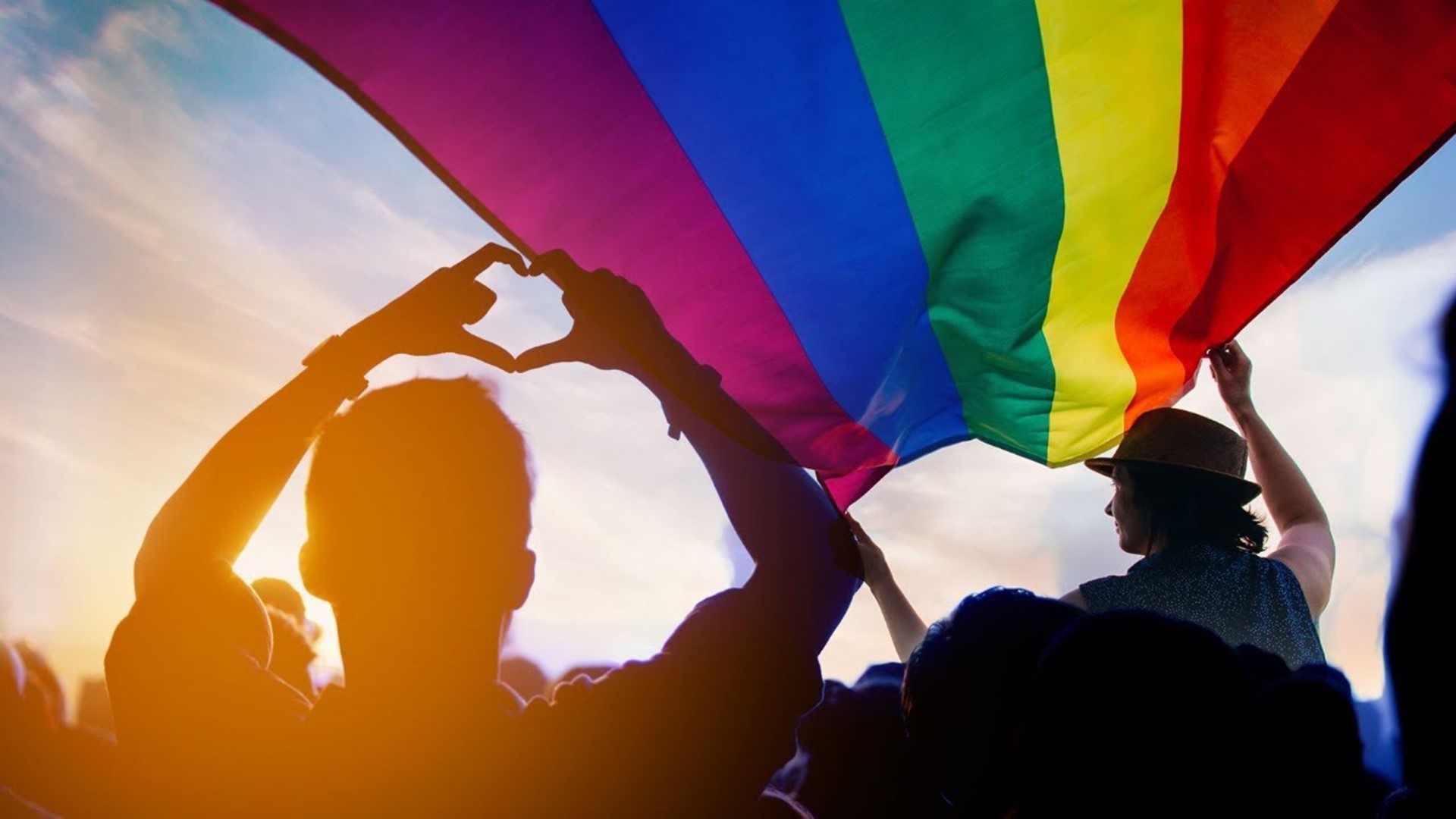LGBTQ+ people in Atlanta talk Pride | Living Out Loud
11Alive spoke with several LGBTQ+ people about their experience and what it means to live life out loud.
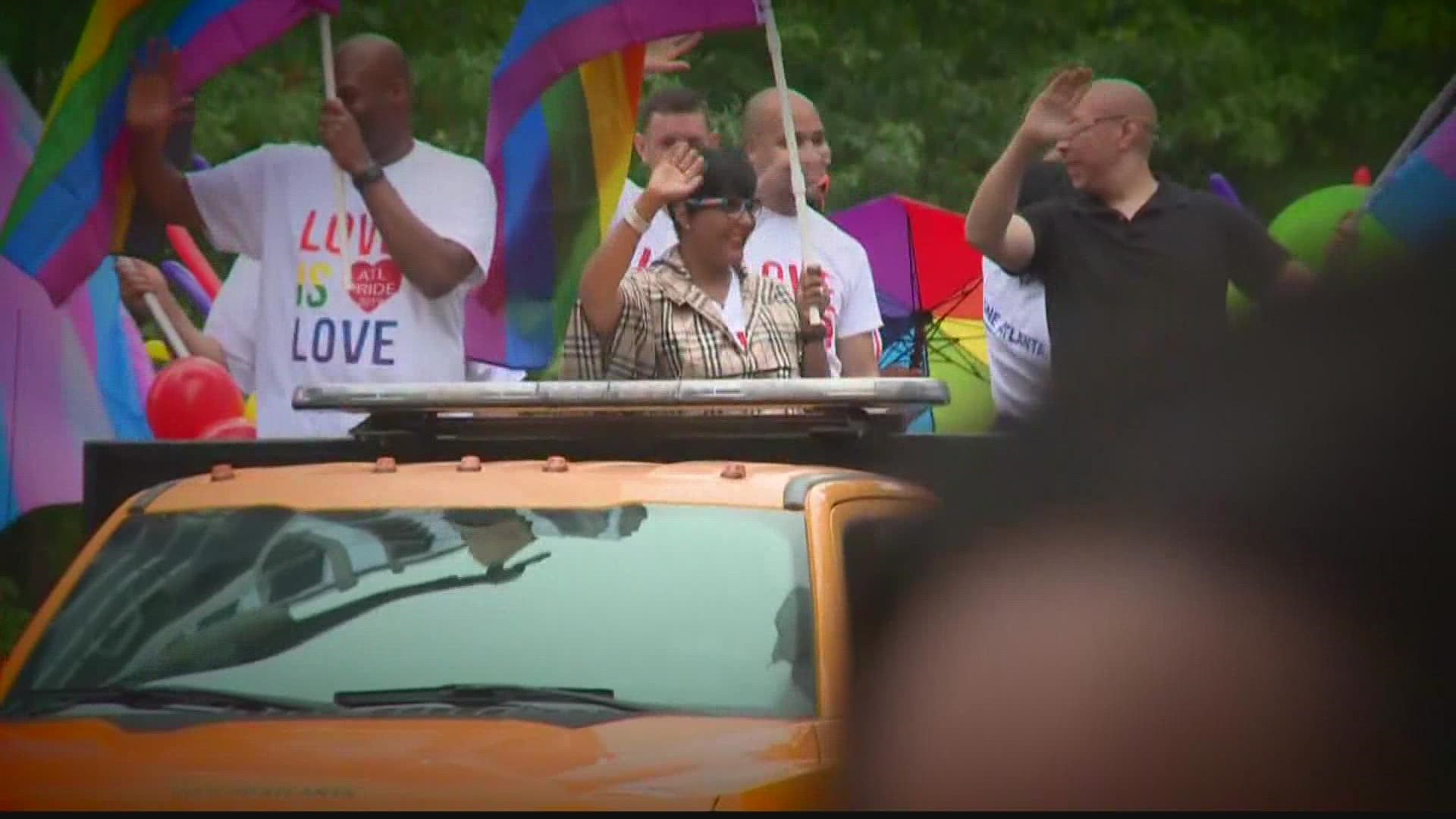
Atlanta has long held the tradition of hosting Pride in October to coincide with the anniversary of the Stonewall riots when activists and police clashed in New York. As a part of that remembrance, 11Alive spoke with several local LGBTQ+ people about their lives and what it means for them to live in their truth.
Watch the full special in the player above or the YouTube player at the bottom of this article. There are videos included in each section from the full special below.
Different journeys to acceptance
Every LGBTQ+ person takes their path through life to find who they are in a world that might not be so kind. Telling someone you love is often the first big step.
Some come out young, and others come out when they are 52; one of those people was Ja’Mel Ware. That coming-out story started when he was 14 and started his first job.
"I was assigned female at birth," Ware said. "I always was very tomboyish in my dress, and my mother was okay with that until I got my first job. And I went to Wal-Mart, and I bought some SpongeBob boxers."
Though his mother questioned him, Ware said she was understanding.
"My mother died when I was 15, about three months before she died," Ware said. "She started telling me that all boys grow differently, and I had no idea what she meant."
When Ware wanted to transition from female to male, it became clear that his mother knew all along, but she didn't have the words. That decision came after college graduation for fear that his family wouldn't attend. He finally told his grandfather, who Ware said is the most important person in his life, who accepted him as he is.
"Now, it's not to say that all things have been smooth because there's a lot of teaching and learning that my family had to do," Ware said. "But the two core people that matter the most to me always saw me and recognized me."
Some stories come with a little more pressure, like Matt Westmoreland, a councilman for Atlanta. He came out a night before he was sworn into office.
"I worried a little bit about whether people would view me or my public service differently once they learned this information, " Westmoreland said.
And ultimately, it came down to his experiences as a teacher and former school board member in Atlanta. Westmoreland said he saw many students who struggled or were completely comfortable in their identities.
"I thought a lot about the students who showed no hesitation at all in living exactly and authentically who they were and drew a lot of inspiration from that," he said.
Finding community while living in truth
Coming out is only the beginning of the journey. Finding a community of people that genuinely care and want to see you shine is another. Here are a few stories about how LGBTQ+ people found their tribes or, in some cases, made them.
About six months after Jeff Graham came out in college, a friend of his tried to commit suicide, and as a founding member of the Gay-Straight Alliance organization, they brought awareness to LGBTQ+ issues.
"And because it was the mid-1980s I also started working a lot on HIV and AIDS at that point in time," he said. "And I've been doing it ever since."
Graham now works as the Executive Director of Georgia Equality, an "organization that works to advance fairness, safety and opportunity for gay, lesbian, bisexual and transgender communities throughout Georgia," according to their website.
Groups like Georgia Equality provide resources and communities for LGBTQ+ people. Another place that specifically helps LGBTQ+ youth is Lost-N-Found Youth, a nonprofit based in Atlanta.
When Alize Baker went to Lost-N-Found Youth, she was without a home. She hasn't felt comfortable coming out to her family yet, leaving her with a slim support system in her early 20s.
"I know it's not old school or back in a day to where it's just like, 'Oh, well, you're going to be cast in a pit of hell,'" Baker said. "I don't think that it'll be like that, but for me, it's just the comfort of saying, 'Oh, well, mom, I'm bisexual.'"
Baker heard of the nonprofit by word of mouth, and even though she wasn't ready when walking in the door, it turned her life around.
"I knew that I had steps to take in order to get myself out of that situation," Baker said. "So I went on ahead and I was like, okay, let me go ahead and go to this Lost -N- Found thrift store."
For many, the nonprofit, store and resource center provides youth with the words and space to express themselves. That was the case for Dee Great.
"I felt more comfortable within my skin about me. It was like slowly but like gradually coming out," Dee Great said and added later. "I can always count on them to go up there and get a good laugh to boost up my spirit. I also do a therapy."
Navigating love and laws
People in the LGBTQ+ community are continuously fighting for their rights, most notably marriage equality. The U.S. Supreme Court ended state bans on same-sex marriage in 2015, but recently, the court has hinted at changing its mind. This has prompted the U.S. House of Representatives to vote on codifying same-sex marriage nationwide, but it would still need to pass in the Senate.
That question mark around marriage equality is something Ja'Mel Ware and his fiance, Alphonso Mills, have thought about. They feel that their relationship transcends marriage but would like the protections that go along with it.
"We definitely are nervous that the right to get married may not be there for us in the future," Ware said. "We have taken steps to ensure that our life is interconnected in a way that states and the government have no choice but to recognize (it as a) marriage or not."
Though the journey to love and marriage isn't cut and dry for LGBTQ+ people finding love seems to happen all the same. When Juana and Angel Mendenhall first met, it was love at first sight. Juana took a girl's trip to Myrtle Beach, South Carolina and saw Angel on the flight. After a few weeks and a lot of texting, they finally met for dinner.
"She comes out of the airport doors at Hartsfield-Jackson, and I'm waiting on the curbside to pick her up," Juana said. "And when she walked towards me, I said to myself, 'That's her; that's my wife.' And we were inseparable ever since that moment."
When they decided to get married, it wasn't legal in all 50 states, so they decided to elope in New York.
"It was very difficult for many different reasons," Angel said. I knew that I wanted to take her last name, but because of the state that both of us had residency in, neither of them recognized same-sex marriage."
The case was the same almost nine years ago for Larry and Nolan Carter, who had to take a trip to D.C. to legally marry.
"We got doors slammed in our faces," Larry said. "I remember asking a minister to do our ceremony, and they were like, 'Why would you do that? It's not even legal.'"
Larry's mother urged them to share their wedding on YouTube for others to see. The couple was honest and said they feared hateful comments, but looking back, they believe it touched many others.
"Still today, so many young people say, I saw your wedding, and that was the first (LGBTQ+) wedding I saw," Larry said. "It's so meaningful to be like that example that I wanted for myself."
Breaking stigmas
Pride is mostly rainbows, but the clouds open, and rain still pours. People who are a part of marginalized communities are often discriminated against socially, politically and even medically.
Before the world knew what HIV was, it was thought to be a precancer immune deficiency impacting the LGBTQ community. According to the Cancer Research Institute, the initial use of the term gay-related immune deficiency (GRID) or "gay cancer," coined back in the 1980s, mistakenly suggested an inherent link between homosexuality and the disease.
In 1985, the FDA first introduced a lifetime blood ban on gay men, citing a "discovery of high rates of HIV infection in that population."
For Daniel Driffin to test positive for HIV was difficult; there weren't as many resources and medication available as in 2022.
"I remember back in 2008 when the tester said those words," he said. "I definitely thought instantly, like I was walking a new path, and I was walking down a path that would truly be like lonely and desolate."
Driffin works as a project manager with the HIV Vaccine Trial Network. They are a nonprofit and "worldwide collaborative clinical trials network that develops and tests the safety and efficacy of interventions designed to prevent the transmission of HIV," according to its website.
And the story of transmission is not always the same; Ja'Mel Ware was born HIV-positive in 1988 before drugs were released to prevent transmission to a child.
"I feel like being born with HIV is a part of my purpose, just like I feel like my trans identity is a part of my purpose to show the world that people come in all different facets and forms," Ware said. "But God still created all of us. "
What it means to live in full color
Through all the ups and downs, LGBTQ+ people have always found a way to live a life full of color. We asked our group, and this is what they had to say about Pride and living in color.
Taylor Alxndr (She / Her + They / Them)
"What keeps me in the light and in moments of happiness is realizing how far I've come and also how far people like me have come," they said. "I think of our queer and trans ancestors who have, you know, to a certain degree, been through worse than what I have been through. And if they were able to persevere and exist and create and rejoice with each other, I also have that ability."

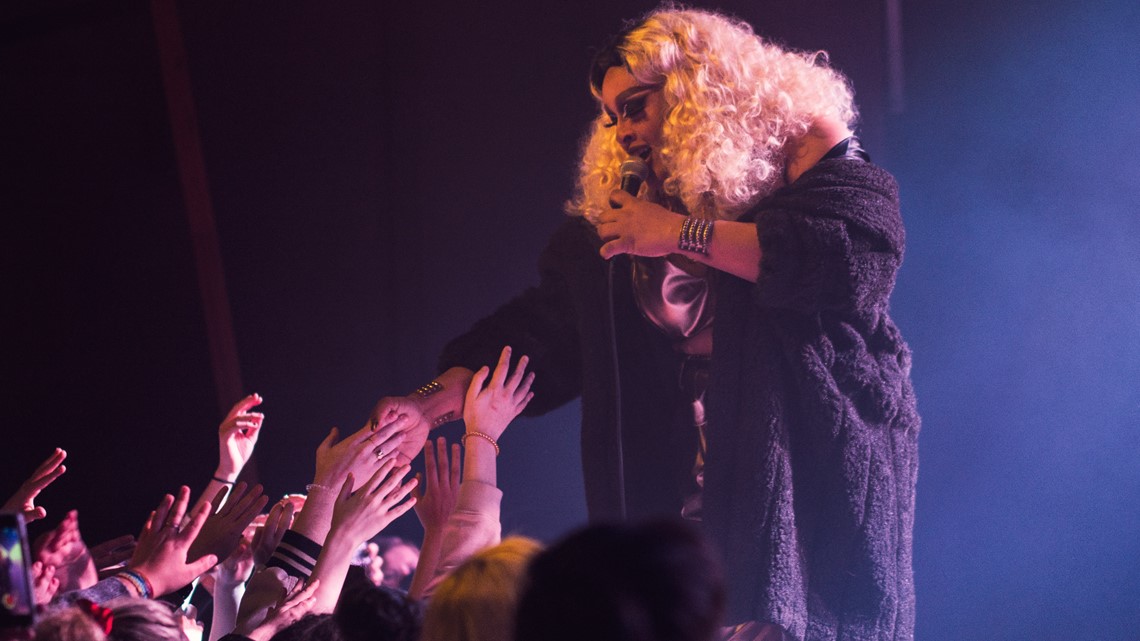
Alphonso Mills (She / He)
"I am able to wake up every day, whether I'm feeling masculine, whether I'm feeling feminine, whether I have on a suit or whether I have on a blouse and four inch heels," she said. "I recognize that God made me exactly how I am supposed to be. And even though I may be different, I'm just unique. Thank you. Beyonce"
Ja’Mel Ware (He / Him)
"So I wake up every day reminding myself what my dreams are," he said. "I've done this since I was a kid. What are your goals? And I put that into perspective with how I'm feeling. To figure out how much it is I can accomplish today and how much or how much rest I need. And I accept wherever I am and I move forward that way."

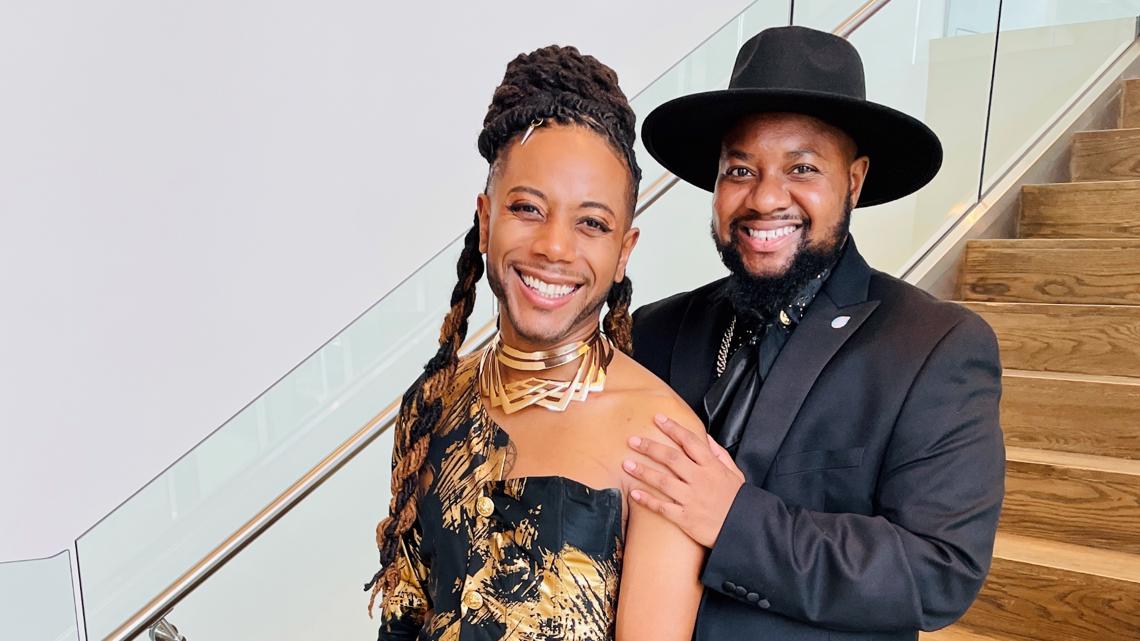
Matt Westmoreland (He / Him)
"And so I think the way all of us end up living in full color is to pus," he said. "In times of discomfort and make sure you're pushing surrounded by friends and loved ones who are there to be there with you through the discomfort, and then things that once felt uncomfortable feel anything but. And that's what full color looks like."

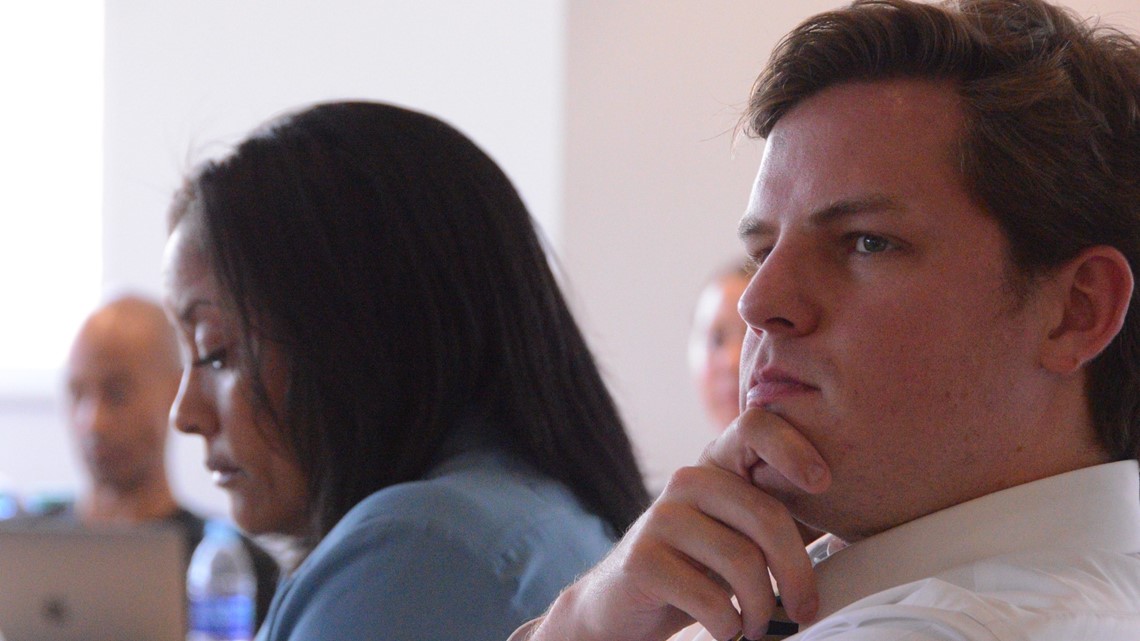
Larry Carter (He / Him)
"To show how you show up in the world is like, I'm proud of that," he said. "I'm proud of who I am, and I want to share it with you. Whether you accept it or not, I don't care. I just am proud enough and I love myself enough to show it outwardly."
Nolan Carter (He / Him)
"Really loving yourself and embracing yourself for who you are, all of your quirks, all of your imperfections, all of your strengths, all of your weaknesses," he said. "Just loving yourself and having pride in who you are."

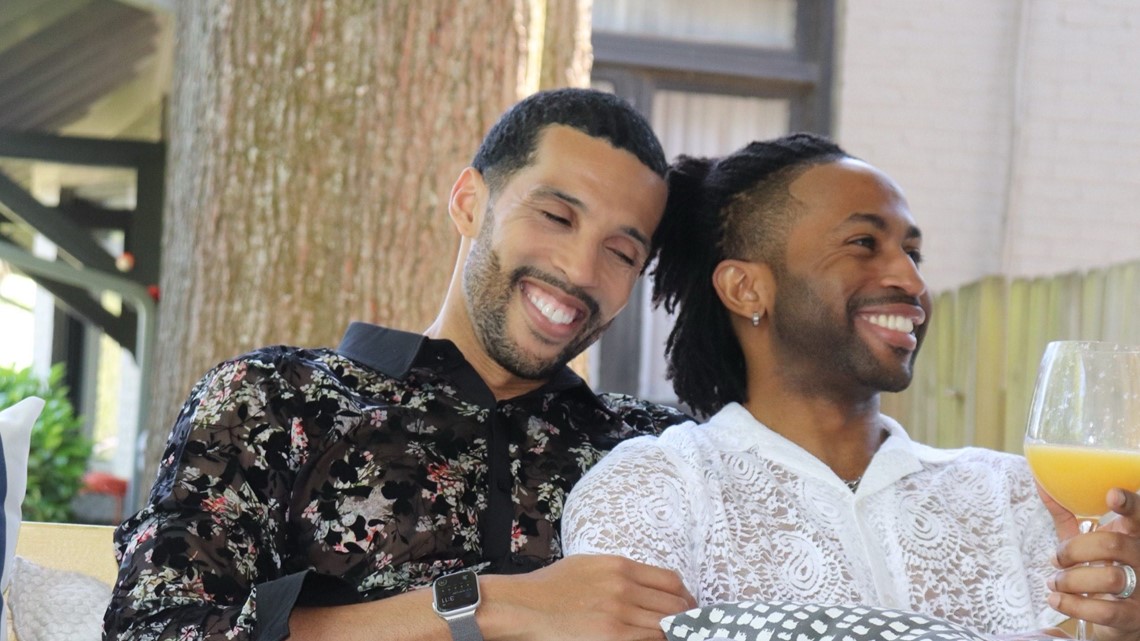
Angel Mendenhall (She / Her)
"To love yourself for exactly who you are without an and unconditional love for yourself," she said. "And being able to live your best life exactly the way you want to live it.
Juana Mendenhall (She / her)
"But I would say pride means to me love, living and peace," she said. "Life is short. So you have to love, you have to live, and you have to do it at peace. Be peace. Be at peace with yourself and everyone else."

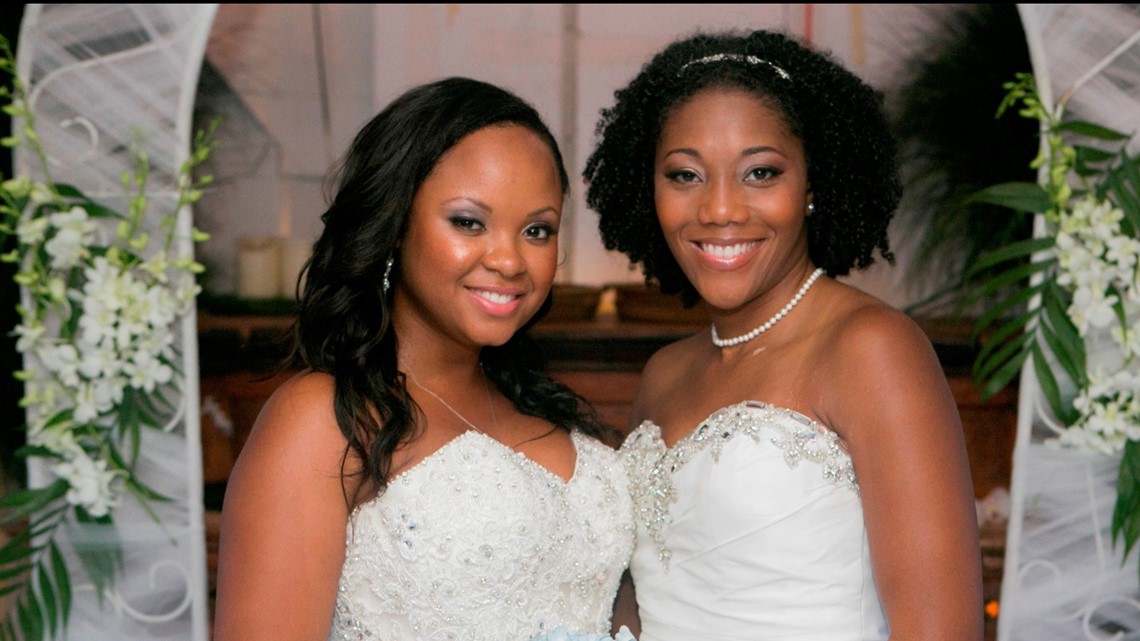
Jeff Graham (He/Him)
"I live my life in full color, because I choose every day to embrace the joy," he said. "To embrace the hope. I've been lucky enough to live through so many challenges."

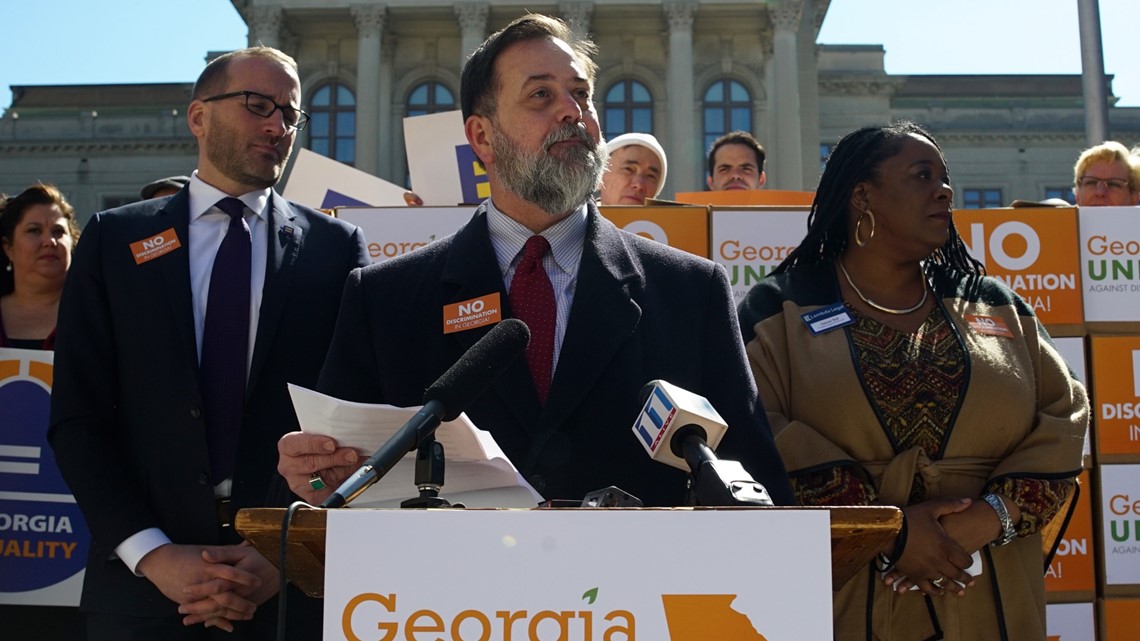
Darian Aaron (He / Him)
"So it's all about the story," he said. "You tell yourself, I'm not feeding negativity to myself. That's not the story that I'm writing for myself. This is the story that I'm writing for myself."
Marcus Gresham (He / Him)
"Once I finally accepted myself. I am able to, you know, live in color, live in my full self, you know, no matter what," he said. "And there's nobody, nobody on this earth that can make me, you know, take that color away."

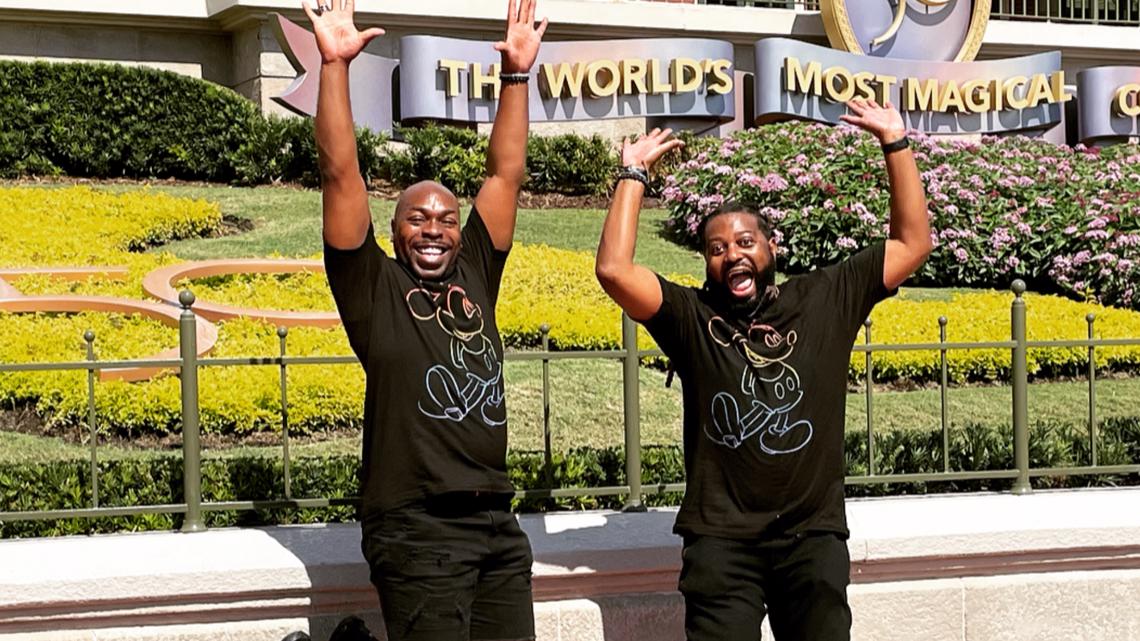
Alize Baker (She / Her)
"I live my color just by simply going out into the world and trying different things.I live my color by doing challenges," she said. "And I feel like if you don't push your limit or exercise your brain, then what are you really doing with your life?"

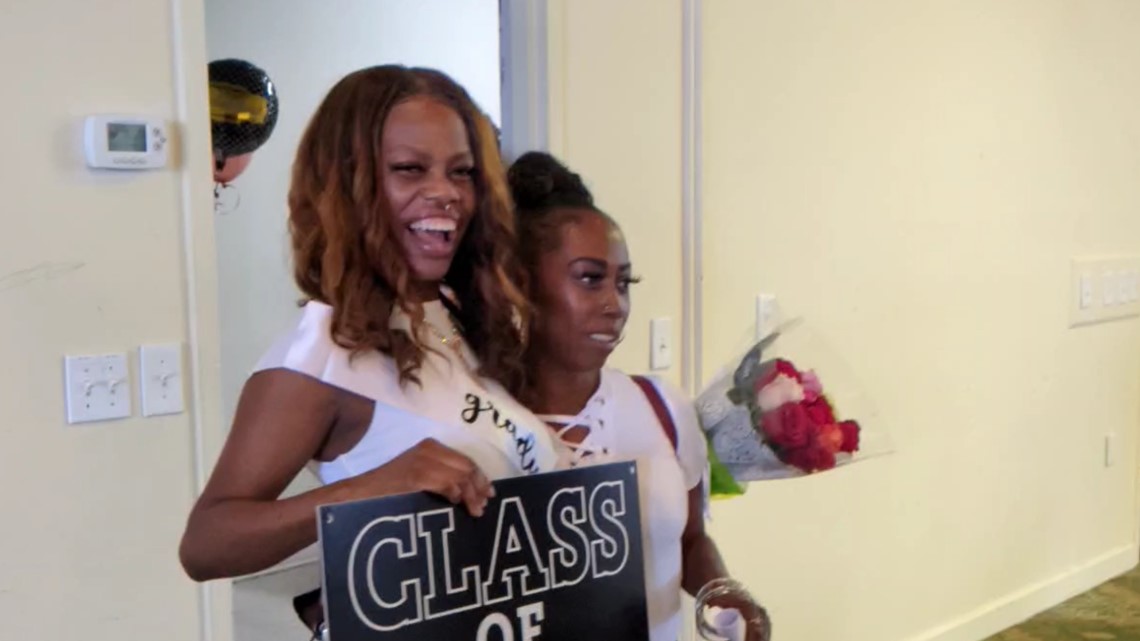
Dee Great (He / Him)
"I guess pride means is. If you're into it and like it makes you happy, go ahead and do it," he said.

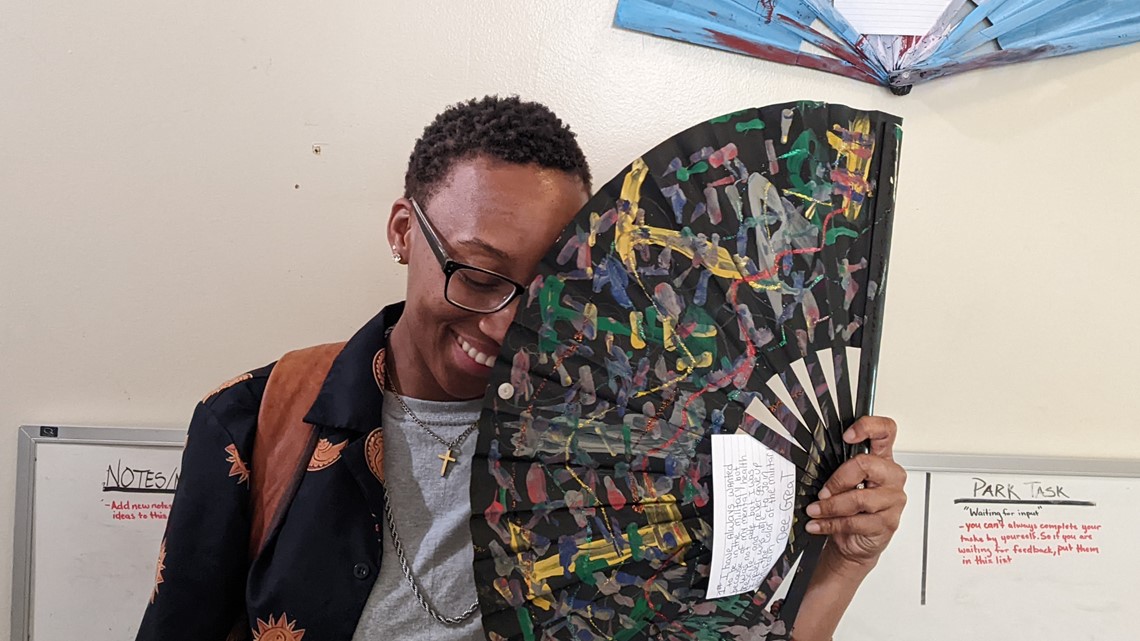
Daniel Driffin He / Him)
"I'm wearing a lapel pin, and it's the White House pride lapel pin. So just randomly. At the beginning of June, I received an email saying President Joseph Robinette Biden and First Lady Jill Biden invites you to the East Room to celebrate Pride," he said. "And never in a million years would I think I would be at the White House celebrating all of me. You know."

